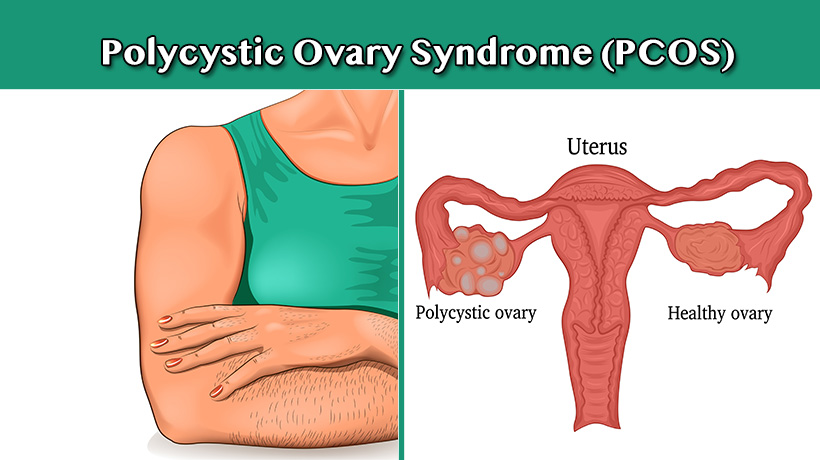Polycystic ovary syndrome (PCOS) is a hormonal disorder in women. According to Mayo Clinic, this disorder causes many women to have an excess number of male hormones, androgens, and prolonged menstrual cycle. The ovaries also develop many small collections of fluid that can affect the regular release of the eggs.
The cause of PCOS is still unknown, according to Mayo Clinic. However, there are symptoms women can be aware of and seek early diagnosis and treatment.
Irregular periods
If your cycle is late, approximately greater than 35 days, you may have to check with a doctor, according to Everyday Health. This is for of the lack of progesterone in women with PCOS.
Difficulty conceiving
Women may have difficulty with conceiving if they have PCOS, according to Everyday Health. Fertility difficulties come from a deficiency of ovulation. Even if a woman is getting her period there isn’t an assurance whether she is ovulating or not. It is possible for women to have their period without ovulating which can be the reason why women don’t notice anything wrong until they try to conceive.
Excess hair growth
Excess hair growth, called hirsutism, can also be a warning sign of PCOS. According to PCOS Awareness Association, women who have PCOS have a high level of androgens which causes excess hair growth in parts of the boy they wouldn’t expect such as the face, arms, chest and toes. However, Loren Wissner Greene, MD, professor of endocrinology and ob-gyn at NYU Langone Health in New York City, mentions that this can vary based off your ethnicity as well, which can predispose you to have excess hair.
More likely to be overweight
PCOS can also cause weight problems. Everyday Health states women with PCOS tend to experience weight gain or obesity. However, this can also affect thin women. According to Amy Medling, certified health coach, thin women are missed because many doctors are looking for a stereotypical overweight woman.
Prone to acne
Women with PCOS also may be prone to having acne. According to Everyday Health, with elevated levels of androgens, skin issues start to appear.
Mood disorders
The U.S. National Library of Medicine spoke about the emphasis on consultation when speaking to a PCOS patient to see any clinical symptoms of anxiety or depression. In addition, it is a chance to address concerns such as marital, family, and social issues because it could be linked to PCOS. Women with PCOS are more likely to suffer from mood disorders such as anxiety or depression.
Fatigue
The feeling of low energy and fatigue is also a symptom of PCOS, according to PCOS Awareness Association. Causes of fatigue due to PCOS are underactive thyroid, low vitamin B12 or vitamin D levels, and anemia which is a low blood count. Sleep problems and side effects of medications can be an issue for feeling fatigue. According to Everyday Health, women with PCOS are likely to have sleep apnea. Issues with sleep and insomnia can also worsen mood problems.
Sources:
https://www.mayoclinic.org/diseases-conditions/pcos/symptoms-causes/syc-20353439
https://www.everydayhealth.com/pcos/symptoms-diagnosis/
https://www.pcosaa.org/pcos-and-fatigue
https://www.ncbi.nlm.nih.gov/pmc/articles/PMC5108561/
https://www.pcosaa.org/pcos-symptoms



